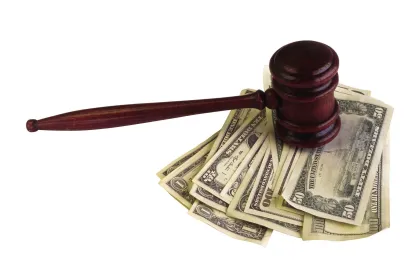A recent decision by the Eleventh Circuit struck down a practice that is commonplace in class action settlements—providing a modest incentive award to a named plaintiff. In Johnson v. NPAS Solutions, LLC, No. 18-12344, 2020 WL 5553312 (11th Cir. Sept. 17, 2020), the district court, as part of the final approval of a class action settlement, approved a $6,000 incentive award for the named plaintiff. An objector to the settlement challenged the incentive award along with other objections, and the Eleventh Circuit held (with one judge dissenting) that the incentive award was improper. The court found that, although such awards are routine, no court had thoroughly evaluated the basis for its authority to approve them. The court relied on two 1880s decisions of the U.S. Supreme Court, which held, prior to invention of the modern class action, that plaintiffs who recovered on behalf of others (such as a trustee who sued on behalf of himself and other bondholders) could not recover an allowance for “personal expenditures” or “personal services” out of a common fund that was obtained. Id. at *8. The Eleventh Circuit majority concluded that, under these decisions, “[a] plaintiff suing on behalf of a class can be reimbursed for attorneys’ fees and expenses incurred in carrying on the litigation, but he cannot be paid a salary or be reimbursed for his personal expenses,” and “the modern-day incentive award” was “roughly analogous to a salary” or “payment for ‘personal services.’” Id. at *9. The majority further concluded that the same result would be warranted if the incentive award were characterized as a “bounty.” According to the majority, such awards, although they have been routine, can be authorized only if the Supreme Court overrules its old precedent, Rule 23 is amended to authorize such awards, or Congress enacts a statute authorizing such awards. Id. at *9, 10-12.
Judge Martin dissented from this portion of the opinion, concluding that the majority’s decision was inconsistent with a 1983 decision of the Eleventh Circuit that had set forth a fairness test for such awards, similar to the approach taken by other circuits (albeit without thoroughly evaluating the authority to make such awards). Judge Martin wrote that: “By prohibiting named plaintiffs from receiving incentive awards, the majority opinion will have the practical effect of requiring named plaintiffs to incur costs well beyond any benefits they receive from their role in leading the class. As a result, I expect potential plaintiffs will be less willing to take on the role of class representative in the future.” Id. at *15 (Martin, J., dissenting).
It will be interesting to see whether this decision results in a decrease in class action filings in the Eleventh Circuit, or if plaintiffs’ attorneys are still able to recruit named plaintiffs without the possibility of an incentive award. It seems unlikely that this decision will make class actions more difficult to settle, although perhaps that could happen if named plaintiffs cannot obtain more than a small amount that absent class members are receiving. Given that the old Supreme Court decisions are focused on circumstances in which a “common fund” was created, perhaps the Eleventh Circuit would reach a different result if the settlement is on a claims-made basis, and provides for the incentive award to be paid by the defendant separately, not as part of a “common fund.” In those circumstances, the court is simply approving the parties’ agreement and not involved in the allocation of a “fund.”
The Eleventh Circuit also found that the district court erred in two other respects that demonstrate some good practice tips for class action lawyers. First, the court of appeals found that the district court improperly set the deadline for objections to the plaintiff’s attorneys’ fee award prior to the filing of the plaintiff’s attorneys’ motion for the fee award, which the court concluded was not in compliance with Fed. R. Civ. P. 23(h). The court concluded, however, that this was harmless error because the objector to the settlement had adequate opportunity to present its position in the district court after the fee motion was filed and on appeal. This problem can easily be avoided when the parties propose a schedule for the class action settlement process to the district court. Such a schedule can require the fee motion to be filed sufficiently in advance of the objection deadline. Second, the court of appeals concluded that the district court failed to make sufficient findings or conclusions to support its decision granting final approval of the settlement and the proposed fee award. Given that it is common practice in most federal courts for the parties to submit a proposed order to the district court, this problem also potentially can be avoided by presenting a thorough proposed order for the district court’s consideration.



 />i
/>i

